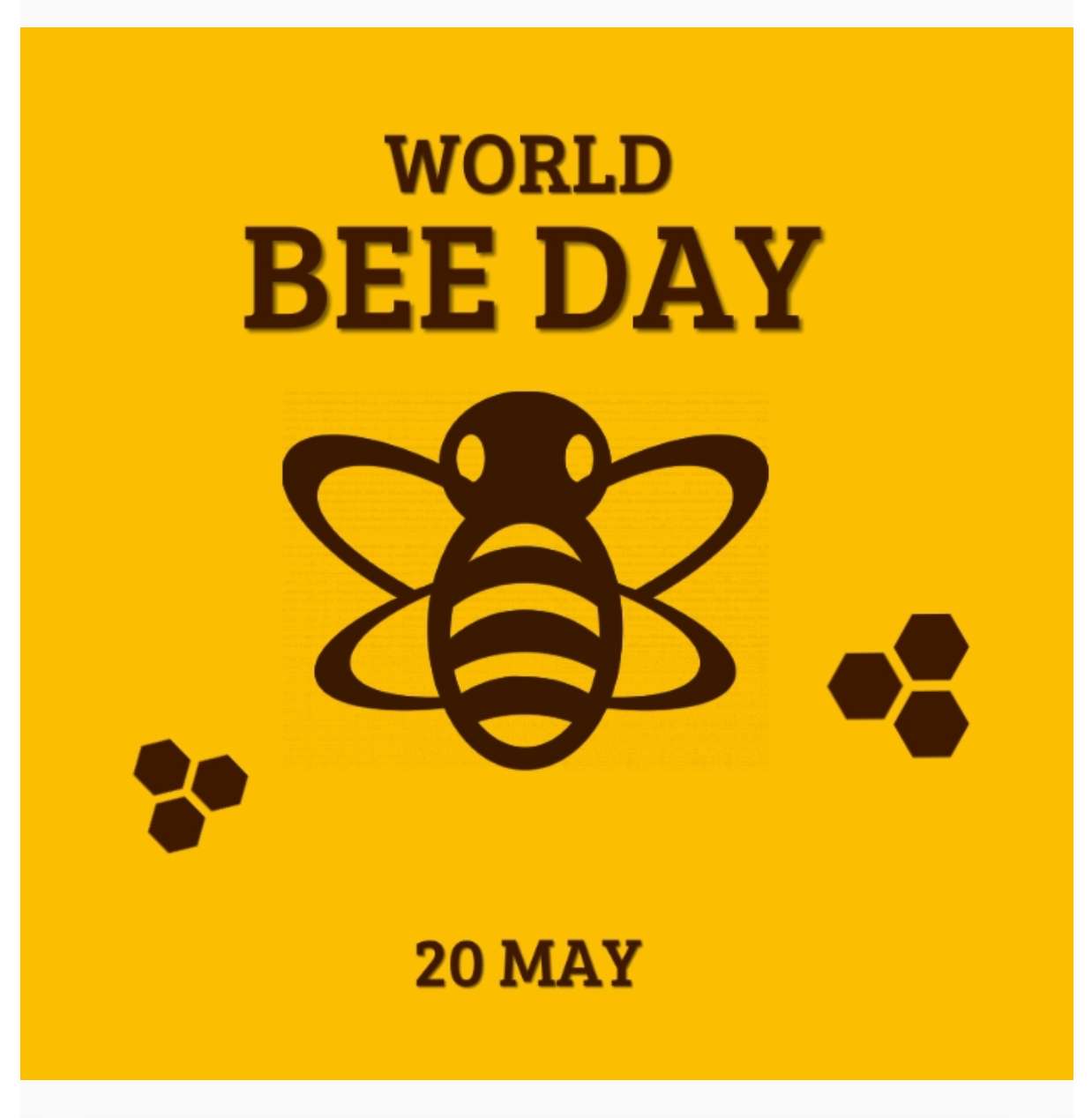It’s World Bee Day! By this point in time, many of us are aware that the survival of bees (and other pollinators) is crucial for all of us. Unfortunately, many of them are currently at risk. Pollinators like bees, butterflies, bats, and hummingbirds are facing increasing threats.
Pollination is a vital process for our ecosystems. Almost 90% of the world’s wild flowering plants rely on animals like bees for pollination, as well as more than 75% of the world’s food crops. Even 35% of the world’s agricultural land benefits from animal pollination. Not only does this help ensure we have enough food, but it’s also essential for preserving biodiversity.

According to the United Nations, “Bees are under threat. Present species extinction rates are 100 to 1,000 times higher than normal due to human impacts. Close to 35 percent of invertebrate pollinators, particularly bees and butterflies, and about 17 percent of vertebrate pollinators, such as bats, face extinction globally. If this trend continues, nutritious crops, such as fruits, nuts and many vegetable crops will be substituted increasingly by staple crops like rice, corn and potatoes, eventually resulting in an imbalanced diet.
Intensive farming practices, land-use change, mono-cropping, pesticides and higher temperatures associated with climate change all pose problems for bee populations and, by extension, the quality of food we grow.”
To highlight the importance of pollinators and the challenges they’re up against, the United Nations declared May 20th as World Bee Day. The aim is to draw attention to the need for protecting bees and other pollinators. Doing so could go a long way in addressing global food security issues and reducing hunger, especially in developing countries.
Fascinating facts about bees are beyond the scope of this article—their honey production abilities are a story in themselves, as are their extensive flight distances for pollination, their unique social structures, and intricate modes of communication. But if you have a minute here are 7 cool facts you might not have known!
How can we do more? From UN.org:
Individually by:
*planting a diverse set of native plants, which flower at different times of the year;
*buying raw honey from local farmers;
*buying products from sustainable agricultural practices;
*avoiding pesticides, fungicides or herbicides in our gardens;
*protecting wild bee colonies when possible;
*sponsoring a hive;
*making a bee water fountain by leaving a water bowl outside;
*helping sustaining forest ecosystems;
*raising awareness around us by sharing this information within our communities and networks; The decline of bees affects us all!
As beekeepers, or farmers by:
*reducing, or changing the usage of pesticides;
*diversifying crops as much as possible, and/or planting attractive crops around the field;
*creating hedgerows.



















